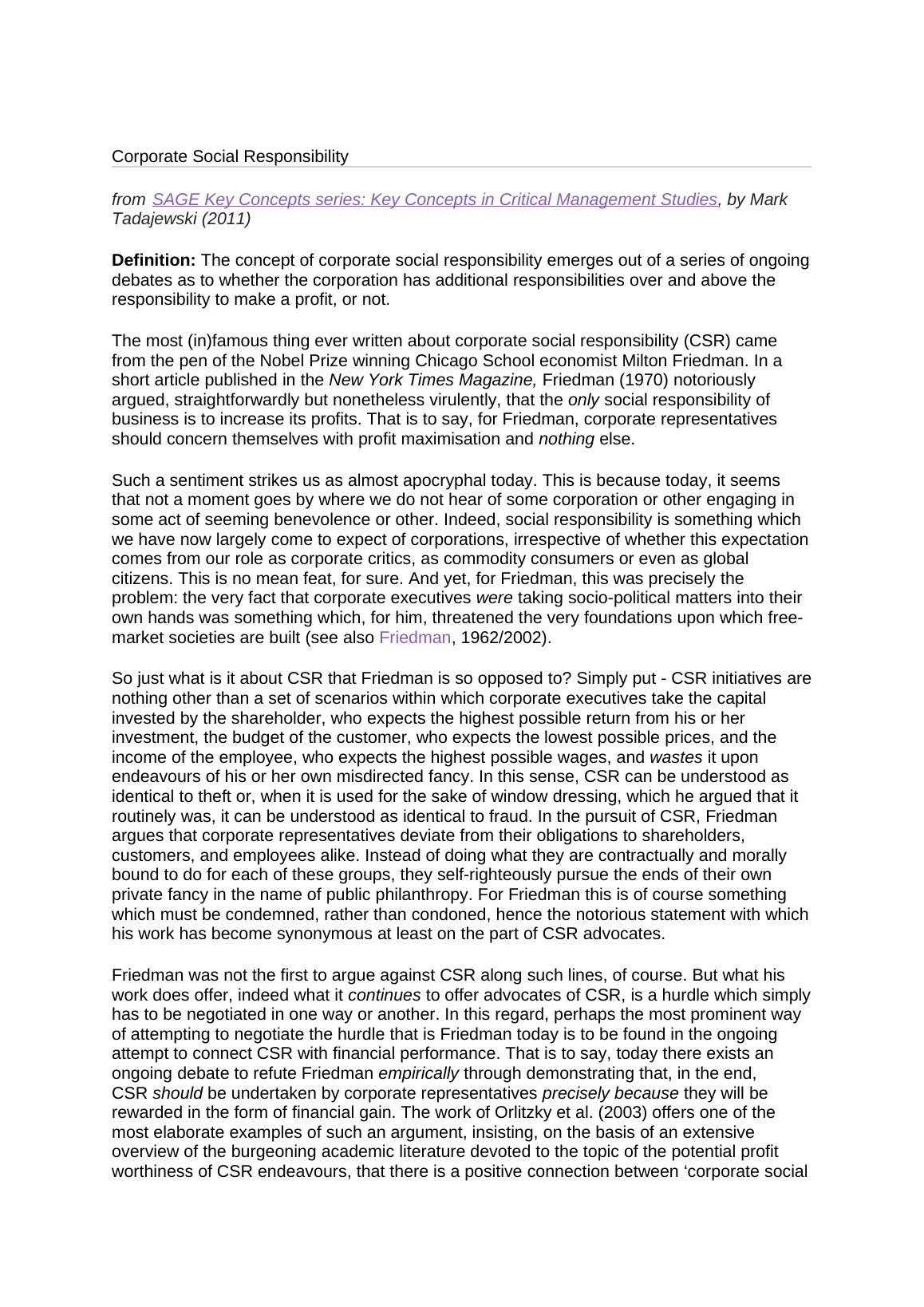Ask a question from expert
Corporate Social Responsibility from SAGE Key Concepts Series: Key Concepts in Critical Management Studies
3 Pages1749 Words320 Views
Added on 2021-03-23
About This Document
And yet, for Friedman, this was precisely the problem: the very fact that corporate executives were taking socio-political matters into their own hands was something which, for him, threatened the very foundations upon which free-market societies are built (see also Friedman, 1962/2002). Many CSR initiatives are nothing other than a set of scenarios within which corporate executives take the capital invested by the shareholder, who expects the highest possible return from his or her investment, the budget of the customer, who
Corporate Social Responsibility from SAGE Key Concepts Series: Key Concepts in Critical Management Studies
Added on 2021-03-23
BookmarkShareRelated Documents
End of preview
Want to access all the pages? Upload your documents or become a member.
